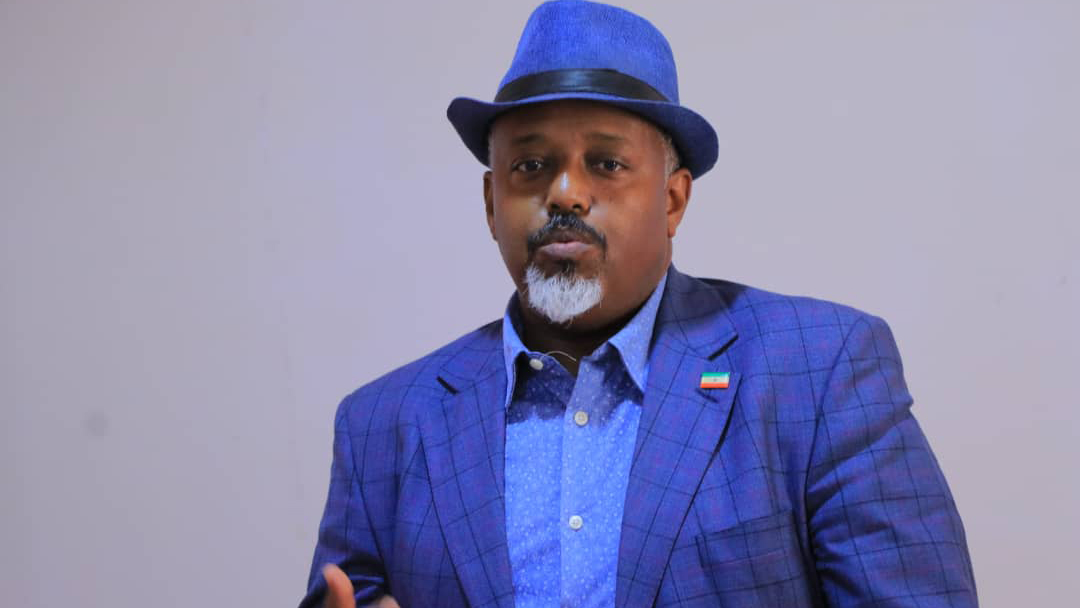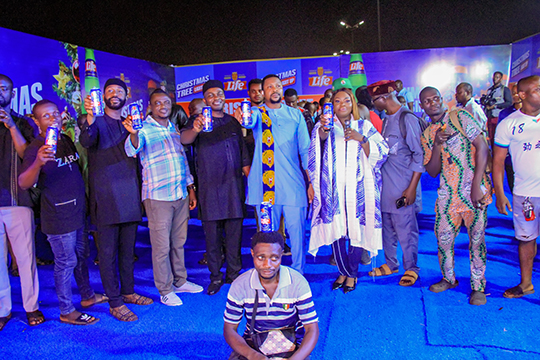 Nwafor Festival is a major cultural celebration in Ogidi and Ogbunike communities of Anambra State. Within the same period, other neigbouring towns such as Umunya also celebrate Isigwu, while Umudioka people celebrate Nkpukpa. Performed after the cultivation of yam to mark the beginning of a resting period, Nwafor takes a period of 11 days, starting from the first Friday (Afor) in the month of July and for the next 10 days.
Nwafor Festival is a major cultural celebration in Ogidi and Ogbunike communities of Anambra State. Within the same period, other neigbouring towns such as Umunya also celebrate Isigwu, while Umudioka people celebrate Nkpukpa. Performed after the cultivation of yam to mark the beginning of a resting period, Nwafor takes a period of 11 days, starting from the first Friday (Afor) in the month of July and for the next 10 days.
A few days to the festival, on Thursday precisely the Orie market day, ceremonial masquerades perform the traditional dance around the community, setting the tone for the main event. The highpoint is usually on Sunday when the people gather at the community halls to say prayers and thanks God for a successful cultivation period and also pray for a large harvest of the New Yam.
Speaking on the significance of the age-long festival that unites people of the communities, Barr. Obiwenite Obimuanye described Nwafor as the highest cultural festival in Ogidi Community.
“It brings our people home for celebration; it is also economically beneficial to the community as there is increase in trade. Outside Christmas, only Nwafor brings Ogidi men and women together; it cuts across religious divide because everybody enjoys it.”
There’s a popular saying in local parlance that an Ogidi man should not be outside when Nwafor is being celebrated. This clearly points to the importance of the feast to people of Ogidi.
“During Nwafor, people normally send word home; maybe by way of money or materials to support those at home to celebrate. It marks the end of the planting season. It’s kind of a transitional period after the planting, because by August and September, we will start talking of harvesting our yam,” he said.
Unlike other festival dates that could be altered, Nwafor has a fixed date well know to everybody, therefore giving enough room for preparation; nobody is taken unawares.
“Thursday before the commencement of the feast is for the induction of new initiates into the masquerade group. That’s for young boys of around 10 years of age. And when he gets initiated, it’s assumed that he has come of age; when there’s a meeting in the family, you don’t send him away,” Obimuanya hinted.
As part of the celebration, there are no funerals and wedding ceremonies in community; it’s all about fanfare. Though other communities celebrate at the same time, Ogidi remains the centre of attraction during Nwafor.
“Because we live along the major road, other people like to come to celebrate in Ogidi. In fact, it has assumed a carnival atmosphere. Each joint you go to, you see live band entertaining people. This is one festival that brings us together,” the legal practitioner said.
However, not minding the level of popularity and acceptance Nwafor has enjoyed over the years, the Festival, in recent times, has come under severe attacks from some Christian groups, especially the Born Again Christians, who dubbed the cultural feast a fetish celebration. In a way to counter the acerbation, these groups have resorted to organising crusades and youth camp for the youths, as a way of taking their minds off the traditional feast.
But Obimuanya, who is also the Legal Adviser to Ndi Ichie Ogidi (Council of Traditional Chiefs), disagrees with the notion, saying, “as far as we are concerned, Nwafor is a period of celebration, just like when you celebrate Christmas. There’s nothing fetish about Nwafor.”
Using other festivals and carnival across the globe as case in point, Obimuanya, who is versed in the tradition of Ogidi, explained that, “the world is now a global village; it’s easy to access Brazilian carnivals. In their carnivals, you see masquerade with people wearing masks and costumes; they are all forms of celebration. It’s the same thing here; it’s just pure celebration,” he said.
To the lawyer popularly known as Odogwu Ogidi, time has come for Africans to rise and protect our cultures heritage.
“This is my 26th year as a lawyer, but I assure that I’m traditional man to the core. I still break kola nut and offer libation to my ancestors; I commune with them. Do you sometimes wonder why the Whiteman has to come back to this place and try to buy off our artifacts and oracles from the shrines? Why do they take them away? It’s because they’ve discovered there’s some potency about these oracles. So, they now go there and spiritually harness the powers; people are turning back.”
He urged Christian leaders to desist from turning the people against their culture and traditions, adding that, “the problem we have here is ‘do as I say, not as I do.’ The Christian clerics, they will not tell you the truth; everything you do, they try to censor you and say you are being unchristian like. But then, at your back, those things they criticize, they all do it; I assure you,” he said.
To Obimuanya, the culture and tradition of a people is paramount in their development and must be guarded jealously.
“It’s very, very important, because you can never lose your values. Go to the Whiteman’s country, they never lose their values; they still cherish them. Even when you go to places like South America; all those blacks, those traditions and cultures from where they came thousands of years ago, they still remember them; you can never do away with them. If it’s that easy, maybe they would have wished Nwafor Festival away, but they cannot.”
Obimunaya, who recently marked his 50th birthday said, “We are born into this festival. This year, I turned 50 (August 18); at least, I should be able to tell my children how I met Nwafor. Look at my compound, go round; there’s nothing fetish about here. This is purely a celebration,” he said.
While thanking God for his blessings and protections over the years, Odogwu Ogidi said, “it’s not my own making. The only regret is that when I look back, I miss my father and mother; my father died at 64 and my mother died at 62. I pray God to live up to 70; at least I’m being ambitious a little. By then, I hope I would have done so much for my wife and children.”
To the lawyer, attaining 50 is a turnaround period.
“There’s a title Ndi Ichie had wanted me to take all along, but I said I won’t take it until I get to 50, because I’m not in a hurry. When a man fulfills his ambitions at once, the next thing is to die. All the things I said I would do for my wife and my children, I will still do it for them. By 70, if I bow out, I will say, ‘God thank you. You have done so much for me.’ I’m not greedy; I’m a very moderate and modest man.”
In his 50 years in the world, Obimuanya has learned a lot about life.
“Life has taught me that for every good thing, you have God to thank. I’ve never claimed achievement on my own; I always attribute them to the grace and mercy of God. God has been so graceful to me and very merciful in my life.”
Though his father, who wanted a lawyer in the family, initiated the idea of him becoming a lawyer, Obimuanya seems to be enjoying the legal profession.
“In my elementary six, my father impressed on me and said that, ‘if it were in Yoruba land, after acquiring money and properties, they train a lawyer to defend those properties.’ That was the stepping-stone for me. But I thank God I didn’t end up as a medical doctor, because I’m so extroverted; I couldn’t have been a good medical doctor.”
A man of the people, Odogwu Ogidi is a complete socialite, who has interest of his community at heart.
“I like people coming around me. At a time, I would have aspired to be a judge, but then how could I do it? My community needs me; everybody needs me. As a judge, I cannot do that because when people come around, people will say they’ve come to offer me bribe, so I cannot function like that,” he said.
To Obimunaya, a man’s level of education or religious affiliation shouldn’t be a barrier to practicing his culture.
“Many people prefer to think of what people will say about them; I prefer to think of what God thinks about me. I don’t make an exhibition of my believing in God; it’s those people that advertise their believe in God that make a mockery of it. When challenges come, you see that they don’t even believe in the God they claim to know. It’s God that knows who believes in him. Culture is a way of life, so, if you lose it, you’ve lost your heritage,” he said.






